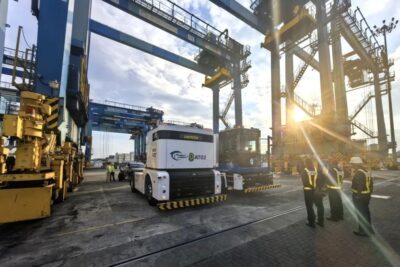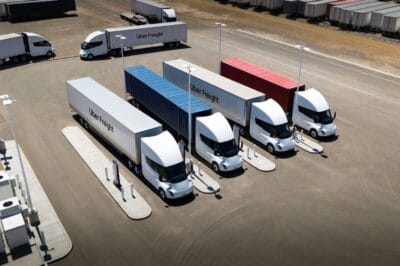France introduces extra subsidy for electric cars made in Europe
On Monday, the same day that French Prime Minister François Bayrou lost his vote of confidence in parliament, the government in Paris announced a new bonus for electric vehicles: from 1 October, buyers of electric cars with European batteries and assembly will receive an additional €1,000 bonus. Bayrou’s cabinet, which created this regulation, will remain in office until a successor government is nominated.
This includes Agnès Pannier-Runacher, Minister for Ecological Transition, Biodiversity, Forests, Oceans and Fisheries, who emphasises: “Ecological transition is a lever for reindustrialisation. By increasing the environmental bonus by €1,000, we are promoting electric vehicles whose batteries are produced in Europe and whose manufacture emits fewer greenhouse gases. This is a win-win situation for purchasing power, the climate and industry. It makes electric cars more accessible to the French while promoting industry and employment.”
While subsidies for electric cars have been completely discontinued in several European nations, for example, French households are still entitled to an existing ‘bonus écologique’ of up to €4,200, depending on their income. To qualify, vehicles must achieve a minimum environmental score. This is because the bonus is not only graded according to the income of the buyer or lessee, but is also linked to the CO2 emissions generated during the production of the vehicles and batteries. The environmental bonus in France is actually a degrading subsidy, meaning that it has been reduced over the years.
Since February 2024, the subsidy has ranged between €2,000 and €4,000, but then the government in Paris made a U-turn by raising the bonus back to €3,100 to €4,200 in July. This was probably a reaction to declining demand: France is struggling with a slight decline in electric car registrations in 2025. According to ACEA statistics, there has been a 4.3 per cent decline so far this year (January to July).
The additional €1,000 means that the maximum subsidy amount has now risen to €5,200 for vehicles assembled in Europe whose batteries are also manufactured in Europe. It is well known that France is establishing a battery industry in the north of the country, but Hungary and Germany, with VW’s initiative in Salzgitter, are also emerging battery production countries. Currently, however, the number of electric cars with batteries from Europe is limited. A list of vehicles eligible for the extra €1,000 is to be published on the ADEME website in the coming days and updated every month, along with the list of vehicles eligible for the environmental bonus.
The outgoing government emphasises that, in the face of strong international competition, Europe must strengthen its production in line with its strategic autonomy agenda. “France defends this vision and reaffirms that production is a prerequisite for sovereignty. Environmental ambitions are a lever for reindustrialisation. The incentive announced today aims to promote the relocation of the value chain for electric vehicles and support industrial employment on our continent.” According to Paris, numerous battery production facilities have already been built in France and Europe. “This incentive is intended to support these factories in increasing production by encouraging manufacturers to source from European factories.”
The cabinet also refers to Mario Draghi’s call on 9 September 2024 to establish explicit criteria for ‘Made in Europe’, for example, in the form of European value-added criteria. A year ago, the former ECB president tried to shake up Europeans in order to remain competitive internationally. To this end, he presented the so-called Draghi Report, a 400-page report entitled: ‘The Future of European Competitiveness – A Competitiveness Strategy for Europe.’ France’s current government has backed these demands and claims to have reaffirmed the goals at the Franco-German Ministerial Council on 29 August 2025.
Marc Ferracci, Minister for Industry and Energy, emphasises: “I am fighting for Europe to prioritise sovereignty and reconcile industrial jobs with the energy transition. Electric vehicles are crucial to the decarbonisation of our economy and can benefit from competitive, carbon-free French electricity.”
In addition to the environmental bonus and the new €1,000 extra bonus, the French government also announced in the summer a comeback for its electric car leasing programme for low-income households, which was suspended in February 2024. This time, the budget amounts to around €370 million for at least 50,000 electric cars. Applications will be accepted from 30 September.
20minutes.fr, lefigaro.fr, presse.economie.gouv.fr (all in French)
This article was first published by Cora Werwitzke for electrive’s German edition.





0 Comments